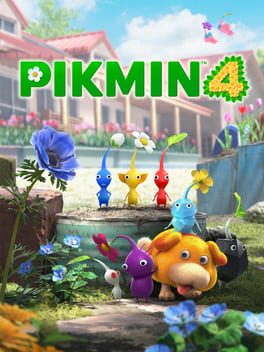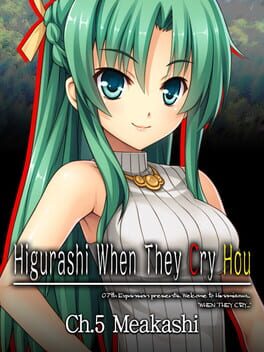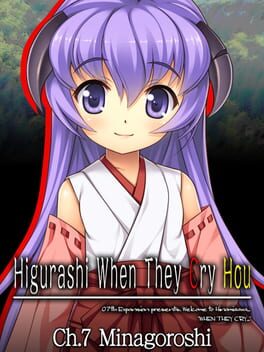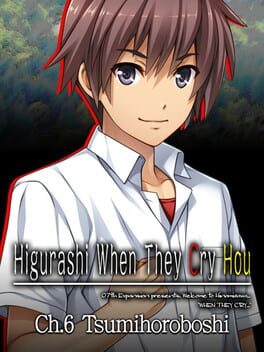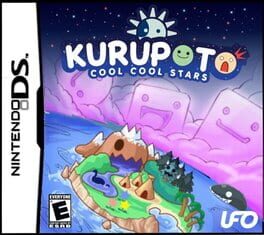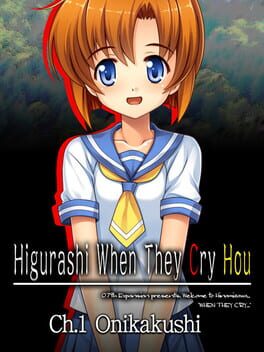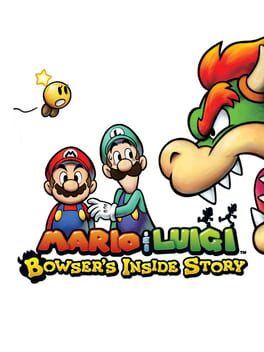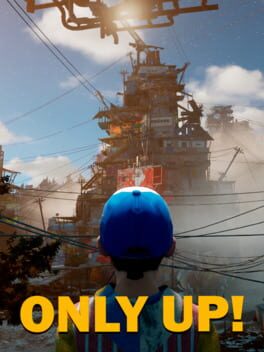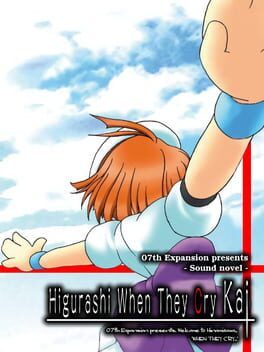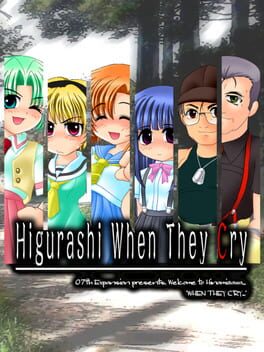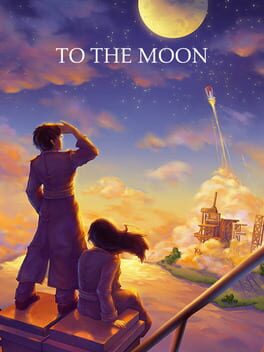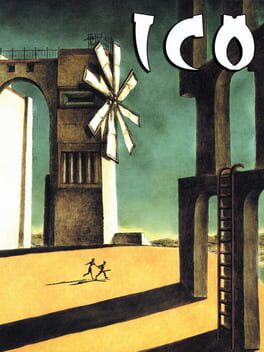151 Reviews liked by Notah
Pikmin 4
2023
the ridiculously sluggish and hand-holdy tutorial made me so nervous that i would hate this game. thankfully it was another 10/10. probably the best one so far. i can't wait for Pikmin 5 to come out in 25 years...
extremely specific nitpicks:
- whoever did the treasure names this time around completely failed to emulate the style of the Pikmin 2 treasure names. Pikmin 2 would NEVER have named a tiny plastic sword "Bright Sword". way too literal. it would be called something like "Imitation Branch". someone needs to make a mod that changes the treasure names to be more Pikmin 2-y
- this is a problem Pikmin 3 had too: the production value on the music is too high. Pikmin 1 and 2's OSTs had a distinctive quirky and weird sound that has evidently been abandoned. bring it back!
- some characters' stories are essentially left unexplained. again. again. this time, it really starts to come off as lazy writing. the main story would have been much more cohesive with even like 1% more effort in this area
- text moves too slowly, especially compared to Pikmin 2 which was super mashable and friendly to speed readers
extremely specific nitpicks:
- whoever did the treasure names this time around completely failed to emulate the style of the Pikmin 2 treasure names. Pikmin 2 would NEVER have named a tiny plastic sword "Bright Sword". way too literal. it would be called something like "Imitation Branch". someone needs to make a mod that changes the treasure names to be more Pikmin 2-y
- this is a problem Pikmin 3 had too: the production value on the music is too high. Pikmin 1 and 2's OSTs had a distinctive quirky and weird sound that has evidently been abandoned. bring it back!
- some characters' stories are essentially left unexplained. again. again. this time, it really starts to come off as lazy writing. the main story would have been much more cohesive with even like 1% more effort in this area
- text moves too slowly, especially compared to Pikmin 2 which was super mashable and friendly to speed readers
Hay algún spoiler, no muy gordo pero no la voy a tapar, así que avisado queda el que lea esto
La forma de conseguir la Espada Maestra en este juego resume fácilmente la mayoría de mis problemas con él. En botw es uno de los mejores recuerdos que tengo en un videojuego. Llegar a ese bosque de casualidad, no saber entrar, encontrar la entrada, hacer el puzzle, y llegar y ver esa atmósfera y esa presentación, y entonces ver que, como la mayoría de personas la primera vez, no puede sacarla. Así que sigues jugando y mejorando corazones, llegas y la sacas. Podréis tener las quejas que queráis de que va a pilas y no hace mucho daño, pero se siente como una recompensa muy merecida y esa presentación cada vez que llegas al bosque me dejaba boquiabierta.
En totk está en un dragón al que puedes llegar cogiendo la misión en el bosque reciclado de botw, o simplemente de casualidad. Llegas al dragón y con dos círculos de energía (lo cual es una jodida miseria) sacas la espada mientras salen lucecitas y suena el motif principal de la saga con muchos instrumentos y muy lento con un crescendo porque qué épico es. Es un espectáculo barato que sucede en 5 segundos pero tendrías que estar señalando a la pantalla porque es Zelda, ¿y qué épico es verdad? Te has subido a un dragón y ha sonado música épica así que deberías flipar, pero no ha habido construcción del momento, no ha habido nada, es un puto espectáculo barato que está deseando que le digas lo que mola casi todo el rato.
Podrías argumentar que debería haber sacado la Espada Maestra después de haber visto todas las cinemáticas mediocres de pelotas de las lágrimas y que habría sido un momento súper emotivo en ese caso aunque ya he visto algunas y sé quién es el dragón, por ejemplo. Pero es que la espada se saca con 5 putas mejoras de energía. Está pensado para que veas el dragón, subas a él y la saques nada más que tienes la oportunidad prácticamente.
¿Recordáis las torres? Eran torres de Ubisoft en botw pero Dios, como molaban. Algunas eran simplemente ejercicios de escalada sin ningún contratiempo pero la mitad tenían retos, enemigos alrededor que te impedían subir, lagos, caminos rotos, se distinguían. En totk son un jodido incordio donde llegas y hay un npc aleatorio en la puerta diciendo que se ha roto así que sube y haz x cosa que tardas 5 segundos en hacer una vez estás arriba o ve por abajo y usa la habilidad de atravesar techos, una y otra vez. ¡Pero sales volando, es súper épico porque escucha la música y mira las islas! Vamos a hablar de las putas islas.
Miden todas como mi habitación menos la primera. No es normal que te vendiesen el juego como si fuesen a ser lo principal cuando son cuatro piedras del parque de al lado de tu casa que se han puesto a flotar y algunas tienen un jodido gachapon encima o algún santuario para meterles un relleno vacío.
La historia es una putísima mierda para toddlers, encima rusheada, con unos aires pretenciosos de aventura épica que sigo sin comprender por qué es así. Música de orquesta épica, la princesa está por ahí perdida, Link a ver si la buscas, Ganon es tope malo porque yo qué sé, es mu malo hay que matarlo, lo matarás con la ayuda de la raza jamás mencionada anteriormente hasta los primeros 2 minutos de juego. ¡Qué épico, eh, os ayudáis a través del tiempo! Madre mía los pelos de punta porque Tilín el pájaro ha pasado de un minuto a otro a decir que somos colegas. Lo de que ninguno de los personajes antepasados importantes de botw o la maquinaría de ese juego exista me parece acojonante también.
Entiendo el propósito de las catacumbas, pero son una jodida aberración. Han cogido el mapa del juego, le han metido tres paredes, una gimmick de que rozas algo rojo y te quedas sin corazones, puesto cuatro campamentos de bichos reciclados y apagado la luz y han dicho: ala, zona hecha. Se supone que su propósito es cambiar el loop de la tierra a uno más calmado, pero es insufrible. Si te construyes un vehículo con luces pasa de ser insufrible a quedarse en tedioso, que a largo plazo se queda en una mala impresión al fin y al cabo.
Otro de mis mejores recuerdos de botw y que se me quedará grabado a fuego hasta que muera es el momento en el que iba perdida por el desierto y empecé a escuchar una canción en un acordeón. Seguí el sonido y encontré una torre que me costó escalar, y al subir encontré a Kass y simplemente me quedé ahí arriba un rato escuchando la canción antes de hacer nada más. Me pareció un momento muy bonito y que siento como mío aunque seguro que lo ha tenido más gente. Porque botw era ese tipo de juego, era un juego donde se creaban situaciones que daban lugar a pequeñas historias personales de cada jugador, pero en totk está todo tan marcado que nadie va a tener una historia así. Llegas a un sitio: toma los materiales, ahí hay enemigos: toma las armas, no puedes subir: toma este sitio marcado para que uses esta habilidad, es todo estúpidamente artificial, todo existe para ti.
Los templos dan asco, prefiero los animalitos mediocres de botw antes que lo que sea que son estas mierdas.
Entiendo que a algunos os flipe este juego porque malo no es, pero solo me parece bueno de verdad cuando está siendo exactamente botw con su loop de ver una cosa en la lejanía, ir a por ella y ver más por el camino y eso es un no parar que sigue igual de bien hecho. Pero tengo la sensación de que o a mí no me gusta el espectáculo barato y por lo tanto no soy el target o de que es el mayor caso de gaslighting sin documentar de la historia de la humanidad, porque sale en la Switch y "Nintendo es la mejor compañía de la historia". Ya estaba decidido por mayoría absoluta que se iba a decir que este juego era una obra maestra sin parar desde el minuto uno, pero eso es más que nada gracias a botw y al fanatismo estúpido de esta saga que sigo sin comprender del todo a día de hoy.
¿Me debería gustar el hecho de que puedas construir un mecha y ese tipo de barbaridades? Porque no lo hace, qué uso real tiene siquiera. Me gusta que sea una opción, demuestra que efectivamente hay bastantes posibilidades con los conocimientos necesarios de los sistemas, pero qué propósito tiene hacer ese tipo de barbaridades. Qué uso va a darle un jugador medio a este tipo de posibilidades. Siento como si lo hubiesen hecho para conseguir viralidad en redes sociales y youtube para que la gente señale con el dedo y diga BUAH COMO MOLA pero es que casi nadie de los que dice eso va a hacer algo así ni de coña.
Este juego tiene que ser una de las cosas más pretenciosas que me he echado a la cara en bastante tiempo. Parece que esté deseando constantemente que señale a la pantalla como una imbécil flipando por la más mínima gilipollez cuando lo único que hago es hacer exactamente lo que el juego quiere que haga o ponerme la cinemática y la historia más mediocre que te puedas cruzar, pero suena música épica y hay explosiones así que debería señalar a la pantalla. Se siente más como una expansión barata de botw que como un juego real. Se habrán pegado más tiempo programando los poderes (encima desaprovechados en los santuarios) que diseñando algo que impacte de verdad.
Por último añado que las últimas horas son insufribles, este juego adora hacerte perder el tiempo con las peores cosas posibles.
La forma de conseguir la Espada Maestra en este juego resume fácilmente la mayoría de mis problemas con él. En botw es uno de los mejores recuerdos que tengo en un videojuego. Llegar a ese bosque de casualidad, no saber entrar, encontrar la entrada, hacer el puzzle, y llegar y ver esa atmósfera y esa presentación, y entonces ver que, como la mayoría de personas la primera vez, no puede sacarla. Así que sigues jugando y mejorando corazones, llegas y la sacas. Podréis tener las quejas que queráis de que va a pilas y no hace mucho daño, pero se siente como una recompensa muy merecida y esa presentación cada vez que llegas al bosque me dejaba boquiabierta.
En totk está en un dragón al que puedes llegar cogiendo la misión en el bosque reciclado de botw, o simplemente de casualidad. Llegas al dragón y con dos círculos de energía (lo cual es una jodida miseria) sacas la espada mientras salen lucecitas y suena el motif principal de la saga con muchos instrumentos y muy lento con un crescendo porque qué épico es. Es un espectáculo barato que sucede en 5 segundos pero tendrías que estar señalando a la pantalla porque es Zelda, ¿y qué épico es verdad? Te has subido a un dragón y ha sonado música épica así que deberías flipar, pero no ha habido construcción del momento, no ha habido nada, es un puto espectáculo barato que está deseando que le digas lo que mola casi todo el rato.
Podrías argumentar que debería haber sacado la Espada Maestra después de haber visto todas las cinemáticas mediocres de pelotas de las lágrimas y que habría sido un momento súper emotivo en ese caso aunque ya he visto algunas y sé quién es el dragón, por ejemplo. Pero es que la espada se saca con 5 putas mejoras de energía. Está pensado para que veas el dragón, subas a él y la saques nada más que tienes la oportunidad prácticamente.
¿Recordáis las torres? Eran torres de Ubisoft en botw pero Dios, como molaban. Algunas eran simplemente ejercicios de escalada sin ningún contratiempo pero la mitad tenían retos, enemigos alrededor que te impedían subir, lagos, caminos rotos, se distinguían. En totk son un jodido incordio donde llegas y hay un npc aleatorio en la puerta diciendo que se ha roto así que sube y haz x cosa que tardas 5 segundos en hacer una vez estás arriba o ve por abajo y usa la habilidad de atravesar techos, una y otra vez. ¡Pero sales volando, es súper épico porque escucha la música y mira las islas! Vamos a hablar de las putas islas.
Miden todas como mi habitación menos la primera. No es normal que te vendiesen el juego como si fuesen a ser lo principal cuando son cuatro piedras del parque de al lado de tu casa que se han puesto a flotar y algunas tienen un jodido gachapon encima o algún santuario para meterles un relleno vacío.
La historia es una putísima mierda para toddlers, encima rusheada, con unos aires pretenciosos de aventura épica que sigo sin comprender por qué es así. Música de orquesta épica, la princesa está por ahí perdida, Link a ver si la buscas, Ganon es tope malo porque yo qué sé, es mu malo hay que matarlo, lo matarás con la ayuda de la raza jamás mencionada anteriormente hasta los primeros 2 minutos de juego. ¡Qué épico, eh, os ayudáis a través del tiempo! Madre mía los pelos de punta porque Tilín el pájaro ha pasado de un minuto a otro a decir que somos colegas. Lo de que ninguno de los personajes antepasados importantes de botw o la maquinaría de ese juego exista me parece acojonante también.
Entiendo el propósito de las catacumbas, pero son una jodida aberración. Han cogido el mapa del juego, le han metido tres paredes, una gimmick de que rozas algo rojo y te quedas sin corazones, puesto cuatro campamentos de bichos reciclados y apagado la luz y han dicho: ala, zona hecha. Se supone que su propósito es cambiar el loop de la tierra a uno más calmado, pero es insufrible. Si te construyes un vehículo con luces pasa de ser insufrible a quedarse en tedioso, que a largo plazo se queda en una mala impresión al fin y al cabo.
Otro de mis mejores recuerdos de botw y que se me quedará grabado a fuego hasta que muera es el momento en el que iba perdida por el desierto y empecé a escuchar una canción en un acordeón. Seguí el sonido y encontré una torre que me costó escalar, y al subir encontré a Kass y simplemente me quedé ahí arriba un rato escuchando la canción antes de hacer nada más. Me pareció un momento muy bonito y que siento como mío aunque seguro que lo ha tenido más gente. Porque botw era ese tipo de juego, era un juego donde se creaban situaciones que daban lugar a pequeñas historias personales de cada jugador, pero en totk está todo tan marcado que nadie va a tener una historia así. Llegas a un sitio: toma los materiales, ahí hay enemigos: toma las armas, no puedes subir: toma este sitio marcado para que uses esta habilidad, es todo estúpidamente artificial, todo existe para ti.
Los templos dan asco, prefiero los animalitos mediocres de botw antes que lo que sea que son estas mierdas.
Entiendo que a algunos os flipe este juego porque malo no es, pero solo me parece bueno de verdad cuando está siendo exactamente botw con su loop de ver una cosa en la lejanía, ir a por ella y ver más por el camino y eso es un no parar que sigue igual de bien hecho. Pero tengo la sensación de que o a mí no me gusta el espectáculo barato y por lo tanto no soy el target o de que es el mayor caso de gaslighting sin documentar de la historia de la humanidad, porque sale en la Switch y "Nintendo es la mejor compañía de la historia". Ya estaba decidido por mayoría absoluta que se iba a decir que este juego era una obra maestra sin parar desde el minuto uno, pero eso es más que nada gracias a botw y al fanatismo estúpido de esta saga que sigo sin comprender del todo a día de hoy.
¿Me debería gustar el hecho de que puedas construir un mecha y ese tipo de barbaridades? Porque no lo hace, qué uso real tiene siquiera. Me gusta que sea una opción, demuestra que efectivamente hay bastantes posibilidades con los conocimientos necesarios de los sistemas, pero qué propósito tiene hacer ese tipo de barbaridades. Qué uso va a darle un jugador medio a este tipo de posibilidades. Siento como si lo hubiesen hecho para conseguir viralidad en redes sociales y youtube para que la gente señale con el dedo y diga BUAH COMO MOLA pero es que casi nadie de los que dice eso va a hacer algo así ni de coña.
Este juego tiene que ser una de las cosas más pretenciosas que me he echado a la cara en bastante tiempo. Parece que esté deseando constantemente que señale a la pantalla como una imbécil flipando por la más mínima gilipollez cuando lo único que hago es hacer exactamente lo que el juego quiere que haga o ponerme la cinemática y la historia más mediocre que te puedas cruzar, pero suena música épica y hay explosiones así que debería señalar a la pantalla. Se siente más como una expansión barata de botw que como un juego real. Se habrán pegado más tiempo programando los poderes (encima desaprovechados en los santuarios) que diseñando algo que impacte de verdad.
Por último añado que las últimas horas son insufribles, este juego adora hacerte perder el tiempo con las peores cosas posibles.
Only Up!
2023
Note: This is going to be a largely personal and reflective piece of writing similar to my piece regarding Higurashi When They Cry’s first half - so if an intimate conversation about myself just as much as it is about this game isn’t your thing, totally valid and understandable. Oh, and this is going to talk about the “Saikoroshi” chapter of Higurashi Rei as well, as I feel it’s best discussed in tandem with the Answer Arcs here - so spoiler warning for all of Chapters 5-8 and Saikoroshi. Also, a content warning for topics of mental illness, self-harm, abuse, and all that entails. I love you and I cannot thank you enough for your time in advance. You aren’t alone.
One of the most difficult things about depression centered around traumatic episodes is that they often chip away and rob you of the things you enjoyed most around those times. It’s been a very difficult journey to reclaim some of my favorite memories, experiences and works of art over the last few years, and I've found it harder than ever to commit to projects or engage with artwork and see it to completion on my own. Anyone who knows me can tell you that’s pretty out of character; I’ve got a penchant for dropping everything to fully embibe myself in some new fascination on a seeming whim, to completely commit to a new horizon and engage with it with a sincerity and passion I’d previously considered reserved only for that which came before it. That stopped a few years ago, and like I said, it’s been a long journey back up that hill. That would’ve been an impossible task without the support group of closest friends I’ve learned to rely and count on since the recovery process began. I’m fortunate to have a friend-group in which I have been positioned to host events and discussions around media - film, music, games, literature, the works - and show up for my ardently patient, curious and brilliantly kind and courteous friends and bring my a-game each and every stream, each and every discussion, each and every day. We’re more than just a hangout group, though - we’ve weathered trauma and pain, grief and loss together. It is a castle held up by each and every stone in the wall. That’s why I was even able to force myself through Higurashi in the first place - because of my friends, because of the fact that I owed them the responsibility to be myself, to express and to feel alongside them, and not to shut myself out and isolate, to mull and wade in my own self-destruction and pity. This was and has been, as I said, a period of recovery - this was the story of my atonement and my growth. Of course, I didn’t know that Higurashi would shed itself to me, Ryukishi’s arms extended, and that I would find my own answers somewhere in this nearly three-month experience. I didn’t know that I had the single most impactful and reflective experience of my adult life with a work of art in front of me. Strange how that happens - just when it’s needed.
It is a hurdle to be a traumatized person, yet to love and to be loved. There exists some paranoia and constant state of doubt that can, like a crack of lighting, strike down any moment of peace and clarity and bring about questioning, self-talk, and confusion. To hear and comprehend that you deserve what you have but, not unlike tasting something bitter, feel your body reject the notion and spit it back out. Sometimes this coagulates into anger, or resentment, sometimes into defensiveness and a desperate clawing-out of social situations. To be hung up on your thoughts in these times, and to believe the things you tell yourself creates a tunnel-vision in which your suspicions turn to truths, your doubt becomes your sword, and your world gets smaller, and smaller, and more and more hopeless without anything actually happening. It’s hard to understand that people outside of your fucked up little maze you’ve splayed out for yourself might perceive you as something more than your illness defines. You take everything at a second meaning. It’s amazing what we can do to ourselves; or, I guess, what our heads are allowed to do to us. It’s been a hurdle to know and understand deep, intimate love, to drop the shields and let that vulnerability show even when the results typically turn out rancid. God knows I’ve got scars. I’m sure a lot of us do. You can see some of them, some you can’t - and I really hope the former never ever come back by my own hands. It’s an impossible feat to comprehend that someone could find beauty around, and yes - even in - that scarred skin, that scarred heart… but this was always a story about miracles, even before we had the means to see that. Love conquers all. Trust and love are the blade and shield of absolute truth and miraculousness. Higurashi is not a story solved with all the guns, cleavers, knives, or baseball bats in the world - it’s the warm, tender feeling of fingers wrapping around one another and the pulling of muscles to form a ring of smiles.
When I retrace the memories and allow myself to step out of the first-person and look at the majority of my adult life thus far, I realize that so much of my time has been spent in the pursuit of absolvement - both from actions, attitudes and situations I have participated or acted upon, as well as - and equally as much - ones beyond my control or centered around my self-perceived place inside them and guilt squared around them. It has taken years to be able to look at situations I’ve carried guilt about - both punishing others just as much as those where the hammer fell down on me - and be able to say with a level of confidence and assuredness “this was not me, and it was not my fault”. If anything, that’s been the harder trial I’ve had to face than to accept accountability and own up to it where it counts. I’m lucky enough to have both grown up around people whose tremendous mistakes and self-centered actions had immediate and scarring ramifications on the lives of myself and others, but to understand those mistakes as well as my own and be taught the throughline of action to consequence and be shown that I’m capable of that the same as anyone else is. Accountability and the opportunity to amend are two of my key values - integrity interloping with both of them - and they’re the foundation of all of my most trusted and intimate relationships. I have made plenty of mistakes for which I’ve paid dearly, and I’ve had actions taken upon me that have left just as many marks. But it was through a series of steps towards recovery in the aftermath of someone else’s impacting decisions that tore my life apart where I began to understand that growth and acceptance can come from anywhere. I’ve been through things I wouldn’t wish upon anyone, but I’m glad some of them happened, because they became moments of introspection where I needed to whittle everything down to the basics and build myself back up with the spotlight of my caring, earnest, and worried friends cast on me - I needed to prove myself and earn my way into a new way of life, regardless of where that situation came from or how it came about. The cycles of manipulation and abuse continued to spin my trajectory and yet, with the hands of my friends who so often reached out, I was able to pull through and see the other side. In recovery from trauma I found a new lease on my existence and equanimity for so many roads I’d taken, so many lives I’d led, so many decisions I’d made, and so many times I’d considered what the cost and point and keeping up with trying even valued. It was my wake-up call and ironically something I’m honestly kind of glad went down. The cycle broke. Despite everything. No longer on the losing end - it was a miracle forged by extended hands. Mine became a game with no losers.
The resonance of these values and the wake and rebirth of these values and this lease on existence are found ubiquitously through the dynamic with the entire group of people I shared the experience of Higurashi When They Cry with. There is emanating selflessness and kindness and humility coming off of each of these people who I’m fortunate to have spent these 160 hours with - and knowing that this story and this experience left a lasting, profound impact on the group at large is something that is said without the need for words. There aren’t many times I can think of in my life where a totally world-altering experience like this that I’ve had has been shared with and immortalized with a group of people like this before, but it’s one of the most powerful feelings - or, perhaps waves of constant feeling - I’ve ever experienced. In a voice that speaks directly from screen to screen across over fifteen years, Ryukishi broke it down and provided the most succinct measures of our progress and our being to us - ours can be a game without losers; you don’t need to go to school, and it can’t teach you art; atonement is personal and internal first and foremost; your legacy isn’t defined by immediate attention to your craft; your communities and your relationships are your proof of your worth. All of these are takeaways we collectively needed to have and sit with. It’s a set of experiences which speaks to the heart of what our purpose in engaging with artwork as a collective is, with the people we do it with, the way we choose to do it. Atonement came and passed through this group all throughout the experience and continued to be a means for us to look towards our better selves - whether these were aspirations for the future or an unclouded look at what we already were.
Sitting at the heart of this story, or maybe more aptly, surrounding this story, is a girl in need of help. Her poems, her conversations, her defense mechanisms, her sifting of the fragments in search of her answer. She sits outside the realm of the fictional work of art she seeks desperately for her reflection in, still drowning in the drink of grief and isolation. Her eyes see only apathy and destitution - as she sees it, she was born into a life of constant sorrow and she might as well take the ride the ticket she was bought offers. She couldn’t possibly the hands she might’ve had extended to her, even as she watches Rika and Hanyū harden their resolve and attend their perfect June of 1983. When the show is over, when all is said and done, and even Takano gains a second chance, Bernkastel sits alone, staring at her reflection in the pool of wine and the fractals of art, fiction and life spread out on her empty floor. There came an understanding by the time Saikoroshi was said and done - for a moment, I was her. For just a slim period of time, I sat there, draped against the floor in her lonely witch’s lair, on the vast shores of destiny and causality, searching for myself. Higurashi When They Cry stared us both back in the face. The difference lies in my surroundings - my friends. My future. My willingness to change. My responsibility. My awakening. My atonement. The accompaniment of the keys to my next summer. My answer. Tears were shared, laughs were had, hugs and thanks and stories and reflections were made. A door to a brighter future, my true route, my perfect ending, was open. A fistful of fragments containing future lifelong memories, 160+ hours of intimate joy, mystery, grief, tears, smiles, gratitude, shock, pride, sorrow, and unending, limitless, borderless, time-transcending, and yes - miraculous love in hand; I clutch in my grasp my favorite period of my adult life, my now-most treasured and beloved work of fiction, and the most incredible experience this medium has yet to offer me, and with my other hand, I begin a daisy chain of holding hands, smiling through tears, from one friend to the next, hopefully reaching all the way from here to Hinamizawa, marching forever into the next perfect summer.
“The storyteller makes no choice;
Soon, you will not hear his voice.
His job is to shed light,
And not to master.”
One of the most difficult things about depression centered around traumatic episodes is that they often chip away and rob you of the things you enjoyed most around those times. It’s been a very difficult journey to reclaim some of my favorite memories, experiences and works of art over the last few years, and I've found it harder than ever to commit to projects or engage with artwork and see it to completion on my own. Anyone who knows me can tell you that’s pretty out of character; I’ve got a penchant for dropping everything to fully embibe myself in some new fascination on a seeming whim, to completely commit to a new horizon and engage with it with a sincerity and passion I’d previously considered reserved only for that which came before it. That stopped a few years ago, and like I said, it’s been a long journey back up that hill. That would’ve been an impossible task without the support group of closest friends I’ve learned to rely and count on since the recovery process began. I’m fortunate to have a friend-group in which I have been positioned to host events and discussions around media - film, music, games, literature, the works - and show up for my ardently patient, curious and brilliantly kind and courteous friends and bring my a-game each and every stream, each and every discussion, each and every day. We’re more than just a hangout group, though - we’ve weathered trauma and pain, grief and loss together. It is a castle held up by each and every stone in the wall. That’s why I was even able to force myself through Higurashi in the first place - because of my friends, because of the fact that I owed them the responsibility to be myself, to express and to feel alongside them, and not to shut myself out and isolate, to mull and wade in my own self-destruction and pity. This was and has been, as I said, a period of recovery - this was the story of my atonement and my growth. Of course, I didn’t know that Higurashi would shed itself to me, Ryukishi’s arms extended, and that I would find my own answers somewhere in this nearly three-month experience. I didn’t know that I had the single most impactful and reflective experience of my adult life with a work of art in front of me. Strange how that happens - just when it’s needed.
It is a hurdle to be a traumatized person, yet to love and to be loved. There exists some paranoia and constant state of doubt that can, like a crack of lighting, strike down any moment of peace and clarity and bring about questioning, self-talk, and confusion. To hear and comprehend that you deserve what you have but, not unlike tasting something bitter, feel your body reject the notion and spit it back out. Sometimes this coagulates into anger, or resentment, sometimes into defensiveness and a desperate clawing-out of social situations. To be hung up on your thoughts in these times, and to believe the things you tell yourself creates a tunnel-vision in which your suspicions turn to truths, your doubt becomes your sword, and your world gets smaller, and smaller, and more and more hopeless without anything actually happening. It’s hard to understand that people outside of your fucked up little maze you’ve splayed out for yourself might perceive you as something more than your illness defines. You take everything at a second meaning. It’s amazing what we can do to ourselves; or, I guess, what our heads are allowed to do to us. It’s been a hurdle to know and understand deep, intimate love, to drop the shields and let that vulnerability show even when the results typically turn out rancid. God knows I’ve got scars. I’m sure a lot of us do. You can see some of them, some you can’t - and I really hope the former never ever come back by my own hands. It’s an impossible feat to comprehend that someone could find beauty around, and yes - even in - that scarred skin, that scarred heart… but this was always a story about miracles, even before we had the means to see that. Love conquers all. Trust and love are the blade and shield of absolute truth and miraculousness. Higurashi is not a story solved with all the guns, cleavers, knives, or baseball bats in the world - it’s the warm, tender feeling of fingers wrapping around one another and the pulling of muscles to form a ring of smiles.
When I retrace the memories and allow myself to step out of the first-person and look at the majority of my adult life thus far, I realize that so much of my time has been spent in the pursuit of absolvement - both from actions, attitudes and situations I have participated or acted upon, as well as - and equally as much - ones beyond my control or centered around my self-perceived place inside them and guilt squared around them. It has taken years to be able to look at situations I’ve carried guilt about - both punishing others just as much as those where the hammer fell down on me - and be able to say with a level of confidence and assuredness “this was not me, and it was not my fault”. If anything, that’s been the harder trial I’ve had to face than to accept accountability and own up to it where it counts. I’m lucky enough to have both grown up around people whose tremendous mistakes and self-centered actions had immediate and scarring ramifications on the lives of myself and others, but to understand those mistakes as well as my own and be taught the throughline of action to consequence and be shown that I’m capable of that the same as anyone else is. Accountability and the opportunity to amend are two of my key values - integrity interloping with both of them - and they’re the foundation of all of my most trusted and intimate relationships. I have made plenty of mistakes for which I’ve paid dearly, and I’ve had actions taken upon me that have left just as many marks. But it was through a series of steps towards recovery in the aftermath of someone else’s impacting decisions that tore my life apart where I began to understand that growth and acceptance can come from anywhere. I’ve been through things I wouldn’t wish upon anyone, but I’m glad some of them happened, because they became moments of introspection where I needed to whittle everything down to the basics and build myself back up with the spotlight of my caring, earnest, and worried friends cast on me - I needed to prove myself and earn my way into a new way of life, regardless of where that situation came from or how it came about. The cycles of manipulation and abuse continued to spin my trajectory and yet, with the hands of my friends who so often reached out, I was able to pull through and see the other side. In recovery from trauma I found a new lease on my existence and equanimity for so many roads I’d taken, so many lives I’d led, so many decisions I’d made, and so many times I’d considered what the cost and point and keeping up with trying even valued. It was my wake-up call and ironically something I’m honestly kind of glad went down. The cycle broke. Despite everything. No longer on the losing end - it was a miracle forged by extended hands. Mine became a game with no losers.
The resonance of these values and the wake and rebirth of these values and this lease on existence are found ubiquitously through the dynamic with the entire group of people I shared the experience of Higurashi When They Cry with. There is emanating selflessness and kindness and humility coming off of each of these people who I’m fortunate to have spent these 160 hours with - and knowing that this story and this experience left a lasting, profound impact on the group at large is something that is said without the need for words. There aren’t many times I can think of in my life where a totally world-altering experience like this that I’ve had has been shared with and immortalized with a group of people like this before, but it’s one of the most powerful feelings - or, perhaps waves of constant feeling - I’ve ever experienced. In a voice that speaks directly from screen to screen across over fifteen years, Ryukishi broke it down and provided the most succinct measures of our progress and our being to us - ours can be a game without losers; you don’t need to go to school, and it can’t teach you art; atonement is personal and internal first and foremost; your legacy isn’t defined by immediate attention to your craft; your communities and your relationships are your proof of your worth. All of these are takeaways we collectively needed to have and sit with. It’s a set of experiences which speaks to the heart of what our purpose in engaging with artwork as a collective is, with the people we do it with, the way we choose to do it. Atonement came and passed through this group all throughout the experience and continued to be a means for us to look towards our better selves - whether these were aspirations for the future or an unclouded look at what we already were.
Sitting at the heart of this story, or maybe more aptly, surrounding this story, is a girl in need of help. Her poems, her conversations, her defense mechanisms, her sifting of the fragments in search of her answer. She sits outside the realm of the fictional work of art she seeks desperately for her reflection in, still drowning in the drink of grief and isolation. Her eyes see only apathy and destitution - as she sees it, she was born into a life of constant sorrow and she might as well take the ride the ticket she was bought offers. She couldn’t possibly the hands she might’ve had extended to her, even as she watches Rika and Hanyū harden their resolve and attend their perfect June of 1983. When the show is over, when all is said and done, and even Takano gains a second chance, Bernkastel sits alone, staring at her reflection in the pool of wine and the fractals of art, fiction and life spread out on her empty floor. There came an understanding by the time Saikoroshi was said and done - for a moment, I was her. For just a slim period of time, I sat there, draped against the floor in her lonely witch’s lair, on the vast shores of destiny and causality, searching for myself. Higurashi When They Cry stared us both back in the face. The difference lies in my surroundings - my friends. My future. My willingness to change. My responsibility. My awakening. My atonement. The accompaniment of the keys to my next summer. My answer. Tears were shared, laughs were had, hugs and thanks and stories and reflections were made. A door to a brighter future, my true route, my perfect ending, was open. A fistful of fragments containing future lifelong memories, 160+ hours of intimate joy, mystery, grief, tears, smiles, gratitude, shock, pride, sorrow, and unending, limitless, borderless, time-transcending, and yes - miraculous love in hand; I clutch in my grasp my favorite period of my adult life, my now-most treasured and beloved work of fiction, and the most incredible experience this medium has yet to offer me, and with my other hand, I begin a daisy chain of holding hands, smiling through tears, from one friend to the next, hopefully reaching all the way from here to Hinamizawa, marching forever into the next perfect summer.
“The storyteller makes no choice;
Soon, you will not hear his voice.
His job is to shed light,
And not to master.”
This review contains spoilers
author’s note: this analysis will only be covering the four chapters of the initial higurashi when they cry series - onikakushi, watanagashi, tatarigoroshi, and himatsubushi. the remaining four chapters, the “answer arcs”, will receive their own right up under the page for higurashi when they cry kai. please be advised that as of the time of writing, i have only played these first four chapters, and as a result, conclusions drawn or predictions made may not reflect my final views of higurashi when they cry in its entirety.
an additional note - this piece comes with a content warning for topics including abuse, trauma, death, and sexual misconduct, both in context of the fictional work and within the context of the author’s real life experiences. please be advised, should those topics be uncomfortable for you to read or partake in discussion about.
“o! the dead! 27 people / even more, they were boys
with their cars, summer jobs / oh, my god... are you one of them?”
- sufjan stevens, "john wayne gacy, jr."
heat rises from the ground in waves, thickening the air and blurring the horizon. the afternoon’s dry scent of grass and foliage. the wanton laughter and excitement of children living out dog days, wrestling, screaming, giggling, sharing secrets, telling stories - a tiny, forgotten slice of their world seemingly cut out of the cloth of modernization remains their kingdom. 1983; a revolutionary shift in culture, a new change of scene. let the children lose it, said bowie a decade prior. these are their days and this is their sprawling, rural dominion. i remember my summers. i remember the feeling of those middle school years, going to beaches and boardwalks and campfires with my friends. i remember the feeling of my first attractions, of kicking myself about things i said to those people with faces and names i can no longer recall, tossing my nokia flip phone - my first - around and waiting for a text back on that terrible signal and hoping my data would last the weekend.
any way you slice it, those days seem natural, comfortable and desirable from any outsider’s perspective. indeed, i find myself looking back at those aspects of that time with a smile while writing this. but context, as always, defines everything. while all of these things are true and i am capable of siphoning fondness and nostalgia from the memory, when the camera zooms back - i was in a living hell. by that age range - say, 13 - i’d experienced a great deal of death and loss, some firsthand. dcfs had made regular appearances in my homes, there had been explosive arguments in both of my parents’ houses, some turning physical. hands and words and neglect had been used against me as a child enough to call a regular occurrence. addiction and its results were every bit of a piece of my developmental years as learning my times tables. by the last visit i can recall taking with friends to those places, where i must’ve been around 14 - about the age of higurashi’s main cast, i’d been sexually abused at least twice by people i trusted. i felt betrayed by institutions that the government had told me would fight to protect me and my brothers. friends couldn’t do much but offer safe havens for temporary stay and hope for the best.
in my 20s, i consider these summers a double-sided coin. i don’t reject one half of that reality in acceptance of the other. often, i feel as if these different compartmentalized sections of my past - to borrow from the grateful dead, these attics of my life, exist in different planes of existence from one another. but part of recovery from trauma, part of equanimity with oneself, is the acceptance, love, and patience with the person you’ve been and the places you’ve been - and to find unison by tying all of those strings together. upon learning that the sole writer and creator of this series, ryukishi07, was a social worker prior to leaving in order to tell this story, the pieces all began to click, and i shared a much needed, heaving, cathartic sob of release alongside higurashi’s third chapter. for the first time in this medium, i feel directly spoken for, understood, loved, apologized to, heard, and fought for by a work of art on this intimate a level. i’ve experienced many titles i hold dear that i appreciated and knew the subject matter to be well-researched, sensibly handled, and passionately discussed. this may be the first i’ve seen where i truly believe this to be a story the author needed to tell, enough to lay down his career and push to make that happen. i’ve described higurashi as “a collection of cries for help”, and that extends beyond fiction. these cries are likely those of children, of families, ryukishi knew, worked with, and felt for. this is living testimony of people like us.
here is our cry for help.
i didn’t have a hinamizawa growing up. my childhood was spent away from the rural sprawl and the vast expanse; just the opposite really, most was spent in and around the bustle of the city or in low-income neighborhoods. but there remains solidarity in the background. we felt firsthand growing up the effect of the affluent and capable vying for leisure over equity. when the game would make the off-hand remark about hand-me-down p.e. uniforms or thrift school clothes shopping, i had to smile because that’s the world i knew well, too. it’s a weird time to reflect on. middle school is a strange period; kids are learning things about themselves, about others, about ‘adult things’ in the world, and conversation about it tends to lean into the comical to avoid discomfort. the higurashi cast reflects this from some of the first conversations in the game. i definitely grimaced at some of the more crass bits of dialogue but in the grand scheme it’s more relatable than i feel it is expository. i wasn’t even popular in school at that age but i found solidarity with kids goofing off and just not really knowing what was going on. going with the flow and learning as we figured out how. higurashi reflects that inquisitive age, with all of its embarrassments, in an earnest way.
the aesthetic direction of the game hammers home that era and those sentiments. i’m of the firm belief that the original art and music is the way that higurashi should be seen and heard, because every bit of its personal charm, handmade expression and amateur auteur bursts to life in a way so much more endearing and captivating than the re-releases’ “cleaned up”, standardized presentation. the voice acting work included in the sound novel release completes the picture, with the most passionate and powerful performances i’ve ever heard in a video game, across the cast. it’s the buzz in the microphones, it’s the jpeg artifacting around the complicated hair sprite work, it’s the hand-airbrushed photo backgrounds, the mp3 quality soundtrack that truly piecemeals together the authentic 2002 experience that higurashi embraces and dilapidated equally. higurashi outright requires and demands its context - lodged in the midst of key’s iconic run of air, kanon and clannad, alongside the blossoming mind bending shift towards meta and surrealist writing coming from works like tsukihime and ever17. in order for higurashi to become truly timeless, you must accept it and consider it as being exactly from its era, with all of the patchwork handcrafted humanity that took it there. there is perhaps no atmosphere in gaming as heady, surreal, and uneasy as hinamizawa’s. the shrill singing of the cicadas, the warm afternoon glow, and the lynchian pacing of keenly awkward line after line. the feeling never quite lets up.
and it’s through these imperfections and because of the odd sprite clipping and engine pauses and clipping audio peaking that an effect that could not be replicated intentionally by a modern counterpart occurs. somewhere in onikakushi, the group i’m playing with expressed this uneasy feeling that something lurks within the game itself. in ways, higurashi truly begins to feel like a living being, or at least, the vessel for something much angrier, saddier, and grief-wracked - a host for a bellowing beast scratching at the walls of the game window and begging to be heard and understood. the feeling never quite goes away, even with the shift away from psychological horror in later chapters to lean into societal/political power-vaulting and intense melodrama. higurashi oftentimes leans into sensationalist, breakneck moments and twists, but everything remains grounded, logical, and heartfelt at the core, so what could in a lesser story become jarring feels like a natural symbiosis within its context. on a similar note, where many works influenced by higurashi would prefer the route of “x character initially appears to fill x anime character stereotype but this is actually lampshaded and not true at all because of x circumstances, and when said circumstances are revealed, x character drops these traits and reveals a ‘true’ personality”. this isn’t subversive writing - at least, it’s not smart subversive writing. ryukishi doesn’t abandon the idea of who his characters are at face value, rena remains rena, mion remains mion, satoko and rika are very much themselves - but it’s the complexity with which they’re built upon that makes those foundations so strong. their seemingly archetypical first impressions become cornerstones of their personality and their dependencies as people. when rena lashes out in protection of rika at keiichi, of course it seems natural. of course mion has complicated feelings about her responsibility to her family and her never-ending comparisons to shion - of course it drives her mad that the results of her ‘go-getter leader’ backbone keeps the boy she loves from noticing her. and of course… of course there’s a reason why satoko vies so hard for the attention she does. no wonder she finds joy in being noticed. of course she flourishes in the environments where she gets to be the one provoking a little bit of light-hearted fear. juxtapose those children against the adults that permeate these first few chapters - the adults are every bit as interesting, fulfill the same “stereotype of the genre that’s actually the cornerstone and foundation for something much grander”, but when it’s just these characters in the spotlight, or better on their own, it’s like a completely different world is playing out with different morals and perspectives. hell, there’s an argument to be made that ōishi is higurashi’s most complex, enticing, and interesting character. every bit the shit-eating pig he comes off as at first - and every bit more come the events of say, chapter 3, but it’s still unclear what his agency in everything is, what his beliefs are, and why he’s so intently involved. irie, takano and tomitake remain key figures and if himatsubushi is anything to go off of, i get the feeling there’s an entire story of their own on the horizon. there isn’t anyone here to just fill up time or support a gag. one of the strongest casts in fiction that i’ve come across.
it’s in chapter 3: tatarigoroshi where my opening statement really comes into play, though. it’s here where satoko’s home life becomes the focal point of the story, and where everything about curses and rituals and yakuza and multigenerational sociopolitical powers is all stripepd away and the focus is given to higurashi’s most tragic character. it was around wrapping up chapter 2 where i learned of ryukishi’s history in social work. as satoko’s story unfolded and her life under abuse and neglect became clearer, this is when higurashi’s pinnacle emotional resonance began to take hold. for once, the feeling i got wasn’t just that the creator of a game like this knew about the subject, but that he really knew it on a serious, intimate level and needed to express that somehow. i shed tears for satoko. i shed tears for myself.
keiichi’s development and prophetic transformation come chapter 3 was a hellish spiral to observe. i’ve heard ryukishi compared to dostoevsky before, and this is the first time i truly see it. the comparisons to crime & punishment here are evident; the spiraling mind of a man turned to murder. chapter 2 may’ve been a look into a villainous mind (from our perspective), but this is something new entirely. keiichi is morally justified by his (and my) perspective in his actions, but the slippery slope out of sanity and into post-humanism is a mortifying one to endure. when all is said and done, the inevitable end of chapter 3 may be anticipated, but the depths to which it goes and the manner in which it plays out - in no small part thanks to the largely unsettling final sequence of “keiichi’s” final interview with text overlaying text and utter silence only bled out by radio static - could only be described as truly uncanny and haunting.
i tend to disagree with complaints about higurashi’s pacing - especially considering some of its contemporaries. i found most of the slice of life sequences pretty enjoyable, and some to be among my favorite moments of the early game. i look to watanagashi’s game tournament as an example of one of the highlights. tatarigoroshi’s baseball game led to some pretty amazing character moments from keiichi and satoko. hell, the only episode i didn’t love was the second of watanagashi, just because the perverted humor was a little too much for even my 70s-90s comedy manga raised ass to not get a little annoyed with. i think tatarigoroshi’s pacing remains the best of the four, and from what i understand the slice of life is reduced heavily moving forwards - and i think that’s a good thing. the sol content really benefited the pieces of the story it was there for, and i wouldn’t take it away. these characters wouldn’t have nearly the attachment and foundation they do if those sequences were gone. they feel like friends known intimately and passionately. that makes the chapters’ back halves as effective as they are.
i’ll save my analysis of higurashi’s use of the visual novel medium to tell its story until my group’s completion of chapters 5-8, but i have a working theory about what’s actually going on here, and i haven’t really found anything within the question arcs to disprove it. if i’m right about where this is going, i’ll be happy to talk at length about why i feel higurashi may’ve superseded the need for adaptation, and why i feel it is so integral that this story must be told in exactly the way this visual novel does it. for the meantime, before my theories are set in stone, here’s what i can say. background in the history of the medium here is crucial to siphoning every bit of higurashi’s post-genre approach that one can. it helps to know the formula of the multi-route visual novel, the structure of branching paths and that ultimate reward of a ‘true end’. although my thoughts and predictions generally leaned closer to true than not throughout the questions arc, i never felt above or on top of higurashi’s mystery - i never felt i understood more than i should from the author’s perspective. conferring with my playthrough’s small audience has led to some wild, intensely passionate discussion and we’re all chomping at the bit to see the payoff of the answers arcs. was it worth sitting through onikakushi three times before getting to move forward across various playthroughs? i only loved it and appreciated it more each way through. i can’t wait to be able to view, discuss and analyze the full picture. see you when i wrap up higurashi when they cry kai. as it stands, one of my favorite video games of all time, and hell, one of my favorite and one of the most personally effective pieces of fiction i’ve ever engaged with.
an additional note - this piece comes with a content warning for topics including abuse, trauma, death, and sexual misconduct, both in context of the fictional work and within the context of the author’s real life experiences. please be advised, should those topics be uncomfortable for you to read or partake in discussion about.
“o! the dead! 27 people / even more, they were boys
with their cars, summer jobs / oh, my god... are you one of them?”
- sufjan stevens, "john wayne gacy, jr."
heat rises from the ground in waves, thickening the air and blurring the horizon. the afternoon’s dry scent of grass and foliage. the wanton laughter and excitement of children living out dog days, wrestling, screaming, giggling, sharing secrets, telling stories - a tiny, forgotten slice of their world seemingly cut out of the cloth of modernization remains their kingdom. 1983; a revolutionary shift in culture, a new change of scene. let the children lose it, said bowie a decade prior. these are their days and this is their sprawling, rural dominion. i remember my summers. i remember the feeling of those middle school years, going to beaches and boardwalks and campfires with my friends. i remember the feeling of my first attractions, of kicking myself about things i said to those people with faces and names i can no longer recall, tossing my nokia flip phone - my first - around and waiting for a text back on that terrible signal and hoping my data would last the weekend.
any way you slice it, those days seem natural, comfortable and desirable from any outsider’s perspective. indeed, i find myself looking back at those aspects of that time with a smile while writing this. but context, as always, defines everything. while all of these things are true and i am capable of siphoning fondness and nostalgia from the memory, when the camera zooms back - i was in a living hell. by that age range - say, 13 - i’d experienced a great deal of death and loss, some firsthand. dcfs had made regular appearances in my homes, there had been explosive arguments in both of my parents’ houses, some turning physical. hands and words and neglect had been used against me as a child enough to call a regular occurrence. addiction and its results were every bit of a piece of my developmental years as learning my times tables. by the last visit i can recall taking with friends to those places, where i must’ve been around 14 - about the age of higurashi’s main cast, i’d been sexually abused at least twice by people i trusted. i felt betrayed by institutions that the government had told me would fight to protect me and my brothers. friends couldn’t do much but offer safe havens for temporary stay and hope for the best.
in my 20s, i consider these summers a double-sided coin. i don’t reject one half of that reality in acceptance of the other. often, i feel as if these different compartmentalized sections of my past - to borrow from the grateful dead, these attics of my life, exist in different planes of existence from one another. but part of recovery from trauma, part of equanimity with oneself, is the acceptance, love, and patience with the person you’ve been and the places you’ve been - and to find unison by tying all of those strings together. upon learning that the sole writer and creator of this series, ryukishi07, was a social worker prior to leaving in order to tell this story, the pieces all began to click, and i shared a much needed, heaving, cathartic sob of release alongside higurashi’s third chapter. for the first time in this medium, i feel directly spoken for, understood, loved, apologized to, heard, and fought for by a work of art on this intimate a level. i’ve experienced many titles i hold dear that i appreciated and knew the subject matter to be well-researched, sensibly handled, and passionately discussed. this may be the first i’ve seen where i truly believe this to be a story the author needed to tell, enough to lay down his career and push to make that happen. i’ve described higurashi as “a collection of cries for help”, and that extends beyond fiction. these cries are likely those of children, of families, ryukishi knew, worked with, and felt for. this is living testimony of people like us.
here is our cry for help.
i didn’t have a hinamizawa growing up. my childhood was spent away from the rural sprawl and the vast expanse; just the opposite really, most was spent in and around the bustle of the city or in low-income neighborhoods. but there remains solidarity in the background. we felt firsthand growing up the effect of the affluent and capable vying for leisure over equity. when the game would make the off-hand remark about hand-me-down p.e. uniforms or thrift school clothes shopping, i had to smile because that’s the world i knew well, too. it’s a weird time to reflect on. middle school is a strange period; kids are learning things about themselves, about others, about ‘adult things’ in the world, and conversation about it tends to lean into the comical to avoid discomfort. the higurashi cast reflects this from some of the first conversations in the game. i definitely grimaced at some of the more crass bits of dialogue but in the grand scheme it’s more relatable than i feel it is expository. i wasn’t even popular in school at that age but i found solidarity with kids goofing off and just not really knowing what was going on. going with the flow and learning as we figured out how. higurashi reflects that inquisitive age, with all of its embarrassments, in an earnest way.
the aesthetic direction of the game hammers home that era and those sentiments. i’m of the firm belief that the original art and music is the way that higurashi should be seen and heard, because every bit of its personal charm, handmade expression and amateur auteur bursts to life in a way so much more endearing and captivating than the re-releases’ “cleaned up”, standardized presentation. the voice acting work included in the sound novel release completes the picture, with the most passionate and powerful performances i’ve ever heard in a video game, across the cast. it’s the buzz in the microphones, it’s the jpeg artifacting around the complicated hair sprite work, it’s the hand-airbrushed photo backgrounds, the mp3 quality soundtrack that truly piecemeals together the authentic 2002 experience that higurashi embraces and dilapidated equally. higurashi outright requires and demands its context - lodged in the midst of key’s iconic run of air, kanon and clannad, alongside the blossoming mind bending shift towards meta and surrealist writing coming from works like tsukihime and ever17. in order for higurashi to become truly timeless, you must accept it and consider it as being exactly from its era, with all of the patchwork handcrafted humanity that took it there. there is perhaps no atmosphere in gaming as heady, surreal, and uneasy as hinamizawa’s. the shrill singing of the cicadas, the warm afternoon glow, and the lynchian pacing of keenly awkward line after line. the feeling never quite lets up.
and it’s through these imperfections and because of the odd sprite clipping and engine pauses and clipping audio peaking that an effect that could not be replicated intentionally by a modern counterpart occurs. somewhere in onikakushi, the group i’m playing with expressed this uneasy feeling that something lurks within the game itself. in ways, higurashi truly begins to feel like a living being, or at least, the vessel for something much angrier, saddier, and grief-wracked - a host for a bellowing beast scratching at the walls of the game window and begging to be heard and understood. the feeling never quite goes away, even with the shift away from psychological horror in later chapters to lean into societal/political power-vaulting and intense melodrama. higurashi oftentimes leans into sensationalist, breakneck moments and twists, but everything remains grounded, logical, and heartfelt at the core, so what could in a lesser story become jarring feels like a natural symbiosis within its context. on a similar note, where many works influenced by higurashi would prefer the route of “x character initially appears to fill x anime character stereotype but this is actually lampshaded and not true at all because of x circumstances, and when said circumstances are revealed, x character drops these traits and reveals a ‘true’ personality”. this isn’t subversive writing - at least, it’s not smart subversive writing. ryukishi doesn’t abandon the idea of who his characters are at face value, rena remains rena, mion remains mion, satoko and rika are very much themselves - but it’s the complexity with which they’re built upon that makes those foundations so strong. their seemingly archetypical first impressions become cornerstones of their personality and their dependencies as people. when rena lashes out in protection of rika at keiichi, of course it seems natural. of course mion has complicated feelings about her responsibility to her family and her never-ending comparisons to shion - of course it drives her mad that the results of her ‘go-getter leader’ backbone keeps the boy she loves from noticing her. and of course… of course there’s a reason why satoko vies so hard for the attention she does. no wonder she finds joy in being noticed. of course she flourishes in the environments where she gets to be the one provoking a little bit of light-hearted fear. juxtapose those children against the adults that permeate these first few chapters - the adults are every bit as interesting, fulfill the same “stereotype of the genre that’s actually the cornerstone and foundation for something much grander”, but when it’s just these characters in the spotlight, or better on their own, it’s like a completely different world is playing out with different morals and perspectives. hell, there’s an argument to be made that ōishi is higurashi’s most complex, enticing, and interesting character. every bit the shit-eating pig he comes off as at first - and every bit more come the events of say, chapter 3, but it’s still unclear what his agency in everything is, what his beliefs are, and why he’s so intently involved. irie, takano and tomitake remain key figures and if himatsubushi is anything to go off of, i get the feeling there’s an entire story of their own on the horizon. there isn’t anyone here to just fill up time or support a gag. one of the strongest casts in fiction that i’ve come across.
it’s in chapter 3: tatarigoroshi where my opening statement really comes into play, though. it’s here where satoko’s home life becomes the focal point of the story, and where everything about curses and rituals and yakuza and multigenerational sociopolitical powers is all stripepd away and the focus is given to higurashi’s most tragic character. it was around wrapping up chapter 2 where i learned of ryukishi’s history in social work. as satoko’s story unfolded and her life under abuse and neglect became clearer, this is when higurashi’s pinnacle emotional resonance began to take hold. for once, the feeling i got wasn’t just that the creator of a game like this knew about the subject, but that he really knew it on a serious, intimate level and needed to express that somehow. i shed tears for satoko. i shed tears for myself.
keiichi’s development and prophetic transformation come chapter 3 was a hellish spiral to observe. i’ve heard ryukishi compared to dostoevsky before, and this is the first time i truly see it. the comparisons to crime & punishment here are evident; the spiraling mind of a man turned to murder. chapter 2 may’ve been a look into a villainous mind (from our perspective), but this is something new entirely. keiichi is morally justified by his (and my) perspective in his actions, but the slippery slope out of sanity and into post-humanism is a mortifying one to endure. when all is said and done, the inevitable end of chapter 3 may be anticipated, but the depths to which it goes and the manner in which it plays out - in no small part thanks to the largely unsettling final sequence of “keiichi’s” final interview with text overlaying text and utter silence only bled out by radio static - could only be described as truly uncanny and haunting.
i tend to disagree with complaints about higurashi’s pacing - especially considering some of its contemporaries. i found most of the slice of life sequences pretty enjoyable, and some to be among my favorite moments of the early game. i look to watanagashi’s game tournament as an example of one of the highlights. tatarigoroshi’s baseball game led to some pretty amazing character moments from keiichi and satoko. hell, the only episode i didn’t love was the second of watanagashi, just because the perverted humor was a little too much for even my 70s-90s comedy manga raised ass to not get a little annoyed with. i think tatarigoroshi’s pacing remains the best of the four, and from what i understand the slice of life is reduced heavily moving forwards - and i think that’s a good thing. the sol content really benefited the pieces of the story it was there for, and i wouldn’t take it away. these characters wouldn’t have nearly the attachment and foundation they do if those sequences were gone. they feel like friends known intimately and passionately. that makes the chapters’ back halves as effective as they are.
i’ll save my analysis of higurashi’s use of the visual novel medium to tell its story until my group’s completion of chapters 5-8, but i have a working theory about what’s actually going on here, and i haven’t really found anything within the question arcs to disprove it. if i’m right about where this is going, i’ll be happy to talk at length about why i feel higurashi may’ve superseded the need for adaptation, and why i feel it is so integral that this story must be told in exactly the way this visual novel does it. for the meantime, before my theories are set in stone, here’s what i can say. background in the history of the medium here is crucial to siphoning every bit of higurashi’s post-genre approach that one can. it helps to know the formula of the multi-route visual novel, the structure of branching paths and that ultimate reward of a ‘true end’. although my thoughts and predictions generally leaned closer to true than not throughout the questions arc, i never felt above or on top of higurashi’s mystery - i never felt i understood more than i should from the author’s perspective. conferring with my playthrough’s small audience has led to some wild, intensely passionate discussion and we’re all chomping at the bit to see the payoff of the answers arcs. was it worth sitting through onikakushi three times before getting to move forward across various playthroughs? i only loved it and appreciated it more each way through. i can’t wait to be able to view, discuss and analyze the full picture. see you when i wrap up higurashi when they cry kai. as it stands, one of my favorite video games of all time, and hell, one of my favorite and one of the most personally effective pieces of fiction i’ve ever engaged with.
To the Moon
2011
Ico
2012
it really takes me back to prince of persia sands of time for some reason, it brings forth that "this castle is filled with contraptions that would be relatively easy to operate if you had like a dozen people with you but now everything's deserted so you have to do a fuckton of parkour just to get by while bonding with another character that's the only other living thing in here besides you and the big bad" vibe that i really fuck with
